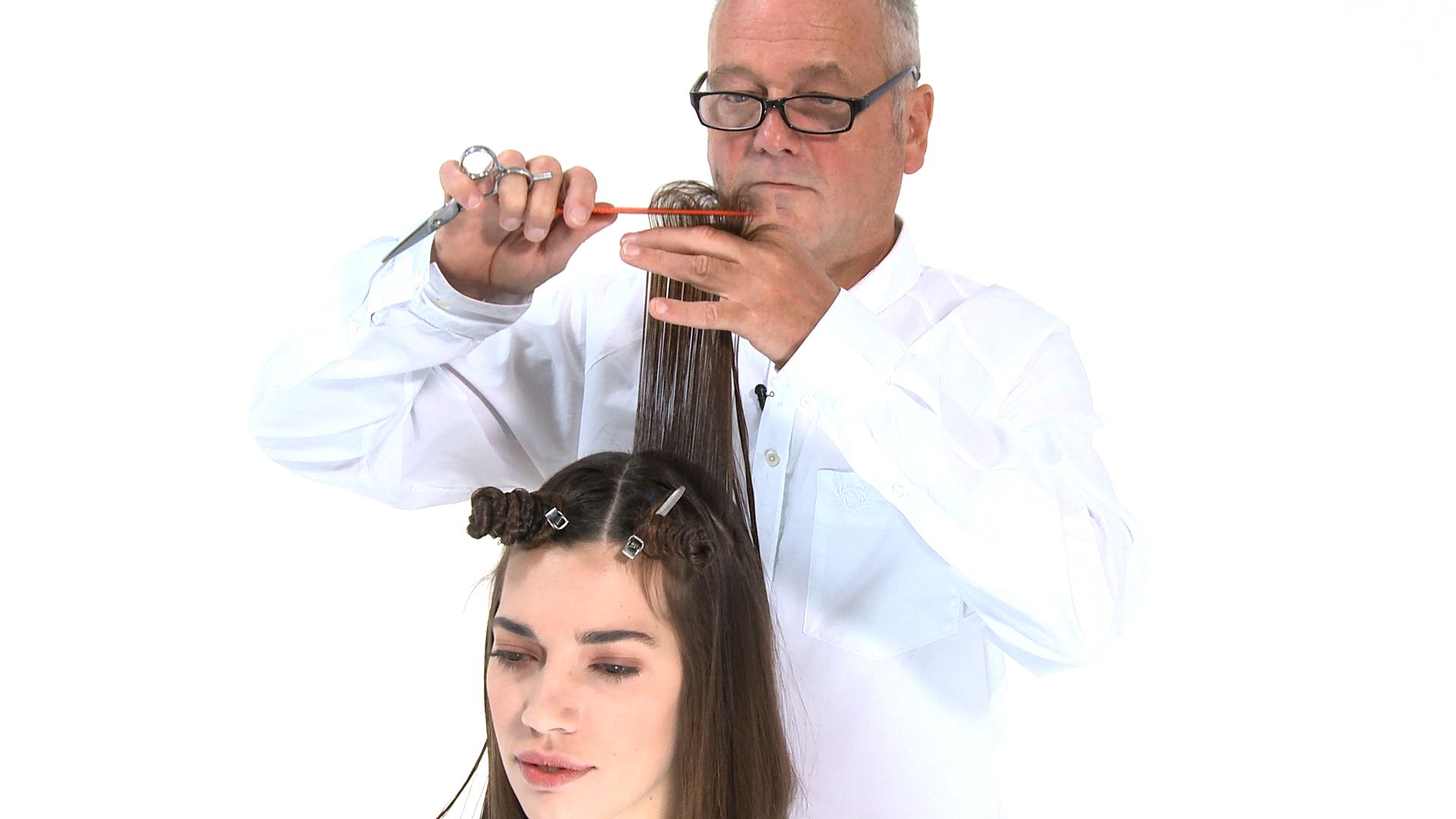Get the look: long a-line shape

Learn to cut a variation of a long A-line shape with an easy to follow step-by-step from Stacey Broughton.
The tutorial teaches graduation, over-direction and the importance of finger and body positioning in the placement of the perimeter line, while the inclusion of freehand techniques softens and loosens this contemporary salon friendly shape.
1. Create a section from ear to ear to the point where the head rounds, then take two further oblong sections in the front.
2. Assess the desired length and cut off the surplus hair approximately 10 cm below that length. This makes sectioning easier and gives a better understanding of the weight and movement in the desired result. 3. Create a further section from the point on the round of the head either side to just before the temple. Create a horizontal section in the nape approximately 3-to-4 cm above the hairline.4. Proceed with the right hand side. Comb the section, elevate to 45 degrees and cut a line in your fingers from longer to shorter. Ensure even tension throughout the section. Repeat the same process on the left-hand side ensuring the same elevation and balance.
5. Take a parallel section on both sides. Cut the right side first. Using the guide from underneath, elevate and slightly over-direct keeping your fingers parallel to the section with even tension. Repeat the same process on the left side.6. Continue with parallel sections alternating each side, working up the head using the underneath as a guide and increasing the over-direction. Once you reach the parietal ridge visually check then cross check diagonally assessing the internal graduation.
7. Continue working with parallel horizontal sections over the round of the head, leaving out the V-shape. Alternate sides for balance and accuracy.
8. Once you reach the temple area, connect to the back ensuring the angle is maintained. Angle your fingers from shorter to longer to maintain the A-line shape and to create length towards the front. Continue this process to the front hairline on both sides. Cross check diagonally, maintaining the same angle of elevation.
9. Refine the outline using a pointing technique to produce a soft loose perimeter, however the structure on the internal shape must have a strong foundation to achieve this.
10. Take down the V-shaped top section. Take a vertical section from the parting on the left, in line with the ear on the left-hand side. Elevate to 90 degrees and cut using a slicing technique from short - long. The shorter length is very similar to the outline length on the underneath. The longer portion is disconnected. Continue this process to the centre-back. Repeat the same process on the right-hand side. Refine the disconnected over-hanging area with a variety of freehand techniques
11. Bring down the front two sections on either side of the parting. Apply a series of freehand techniques to personalise. In this instance Stacey chooses to leave an extreme length in the front. This can be cut to accommodate a variety of lengths according to taste, suitability and hair quality.www.myhairdressers.com Step by step images: Jamie Harrison Final images: Ross Kirton













